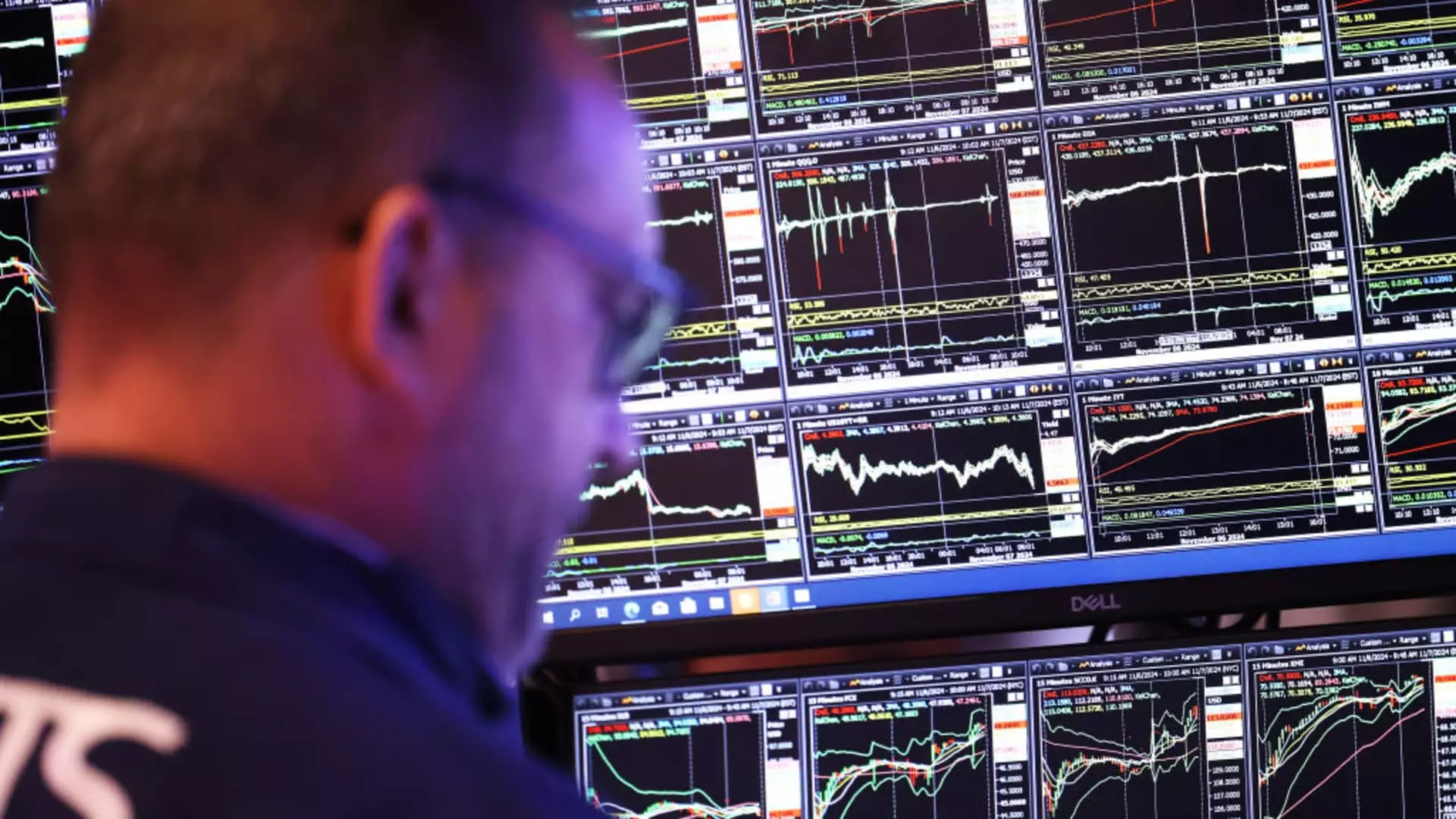European markets experienced a notable downturn on Monday, indicating an air of caution among traders as they prepared for crucial central bank meetings that could shape monetary policy for the upcoming year. The Stoxx 600 index, a key benchmark for the region, reported a modest decline of 0.14% by mid-morning in London, primarily influenced by underperforming automotive stocks. As the year draws to a close, the market is particularly sensitive to shifts in policy from central banks, with great anticipation surrounding the U.S. Federal Reserve’s meeting scheduled for December 18th.
France’s Economic Concerns and Political Instability
In France, the CAC 40 index fell by 0.58% as investors processed a surprising downgrade from Moody’s, which slashed the country’s credit rating from Aa2 to Aa3. The agency cited increasing political instability as a potential threat to French public finances in the coming years. This downgrade comes in the wake of a significant political shake-up, including the announcement of François Bayrou as the country’s fourth prime minister of the year. Such developments contribute to an uncertain economic climate, influencing investor sentiment and market performance.
Despite the broader market downturn, particular segments within the French media landscape demonstrated contrasting performances. Shares of Vivendi soared by 33% after three of its major media entities successfully completed their listings in Europe, a strategic move intended to enhance individual valuations. However, the newly independent Canal+, a key player in broadcasting and film production, faced challenges with its London debut, suffering a 13% drop in share value by midday. This rocky start exemplifies the volatility that can accompany significant corporate restructuring, even amidst positive sentiments surrounding the spinoff.
In parallel, the political landscape in Germany garnered attention as Chancellor Olaf Scholz seeks a vote of confidence from parliament amid the collapse of his coalition. This political fragility could trigger early elections, adding another layer of uncertainty to European markets. As traders analyze these developments, all eyes will also be on upcoming central bank meetings, particularly the Federal Reserve. Current projections indicate a high likelihood—96%—of a 25-basis-point rate cut, which could substantially impact global market dynamics. Similarly, the Bank of England’s impending meeting on December 19th has sparked discussions, though sentiment suggests only a slight chance of a concluding rate cut for the year.
As Europe navigates a complex landscape marked by political shifts, credit rating downgrades, and significant corporate actions, investor sentiment remains cautious. The interconnectedness of these factors will likely dictate market movements in the weeks to come, as traders await clearer signals from central bank decisions and political developments within the region. With a year marked by volatility, the focus will be on how these events shape the economic outlook for 2024 and beyond.


Leave a Reply